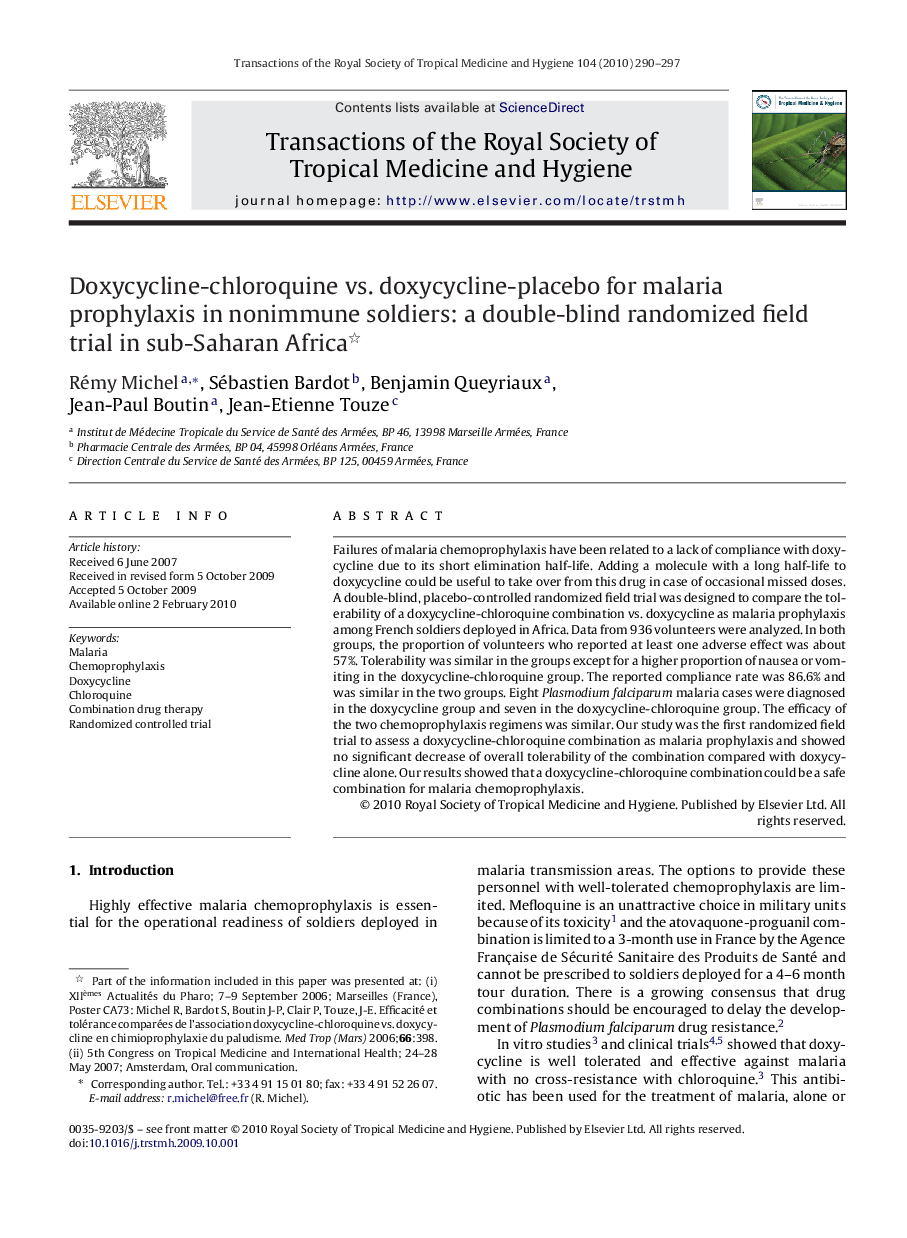| Article ID | Journal | Published Year | Pages | File Type |
|---|---|---|---|---|
| 3420691 | Transactions of the Royal Society of Tropical Medicine and Hygiene | 2010 | 8 Pages |
SummaryFailures of malaria chemoprophylaxis have been related to a lack of compliance with doxycycline due to its short elimination half-life. Adding a molecule with a long half-life to doxycycline could be useful to take over from this drug in case of occasional missed doses. A double-blind, placebo-controlled randomized field trial was designed to compare the tolerability of a doxycycline-chloroquine combination vs. doxycycline as malaria prophylaxis among French soldiers deployed in Africa. Data from 936 volunteers were analyzed. In both groups, the proportion of volunteers who reported at least one adverse effect was about 57%. Tolerability was similar in the groups except for a higher proportion of nausea or vomiting in the doxycycline-chloroquine group. The reported compliance rate was 86.6% and was similar in the two groups. Eight Plasmodium falciparum malaria cases were diagnosed in the doxycycline group and seven in the doxycycline-chloroquine group. The efficacy of the two chemoprophylaxis regimens was similar. Our study was the first randomized field trial to assess a doxycycline-chloroquine combination as malaria prophylaxis and showed no significant decrease of overall tolerability of the combination compared with doxycycline alone. Our results showed that a doxycycline-chloroquine combination could be a safe combination for malaria chemoprophylaxis.
